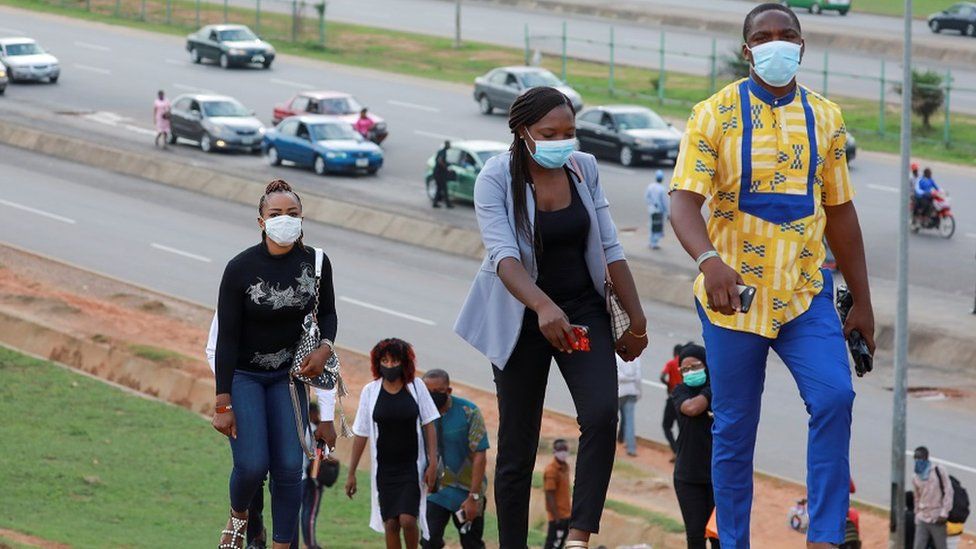
Kigali Begins Lockdown in New Tougher Covid-19 Restrictions
President Paul Kagame chaired a Cabinet meeting, where strict guidelines were put in place to slow the spread of new Covid-19 infections.
Rwanda is currently witnessing an acute rise in coronavirus numbers with 46 per cent of the total cases and 60 per cent of Covid-19 fatalities having been recorded in the last 50 days, according to the Minister of Health, Dr Daniel Ngamije.
This has forced the cabinet to further tighten restriction, including placing Kigali under a total lockdown.
Below are the 10 new guidelines that will be reviewed after two weeks.
1. Kigali placed under total lockdown
The surge in cases specifically in the City of Kigali has necessitated a lockdown. Under the guideline, the communiqué noted that citizens are urged to significantly reduce social interactions and limit movements to essential services.
Information from the Rwanda Biomedical Centre indicates that Kigali accounts for 61 per cent of Covid-19 cases reported in the country since January 1 this year.
2. All movements require a permit
Under the lockdown in Kigali, unnecessary movements including visits outside the home are prohibited, except for essential services, which include medical, food shopping, banking among others.
As it has been, the Rwanda National Police will be in charge of issuing the permits.
3. Public and private transport banned
Both public and private transport is prohibited in Kigali but the rest of the country will be allowed to use the facilities.
However, transportation of food and essential goods will continue to function.
In addition, motos and taxis which will not be allowed to carry passengers have been given the green light to deliver essential goods.
4. Stranded passengers to be facilitated
According to the Minister of Local Government, Prof. Shyaka Anastase, the public has been given a full day to ensure that they observe the new guidelines from their respective homes.
This, Shyaka noted, follows concerns from the public that people were previously not given time to prepare for the new measures.
“People with special cases have been given a full day to ensure that the new measures find them in their homes. There is no room for previous excuses that people were not given time in advance.”
5. Farming activities will continue
Farming will continue for the ongoing agricultural season.
Besides farming, Minister Shyaka pointed out that the government will release a full list of essential services that will be allowed to operate.
6. Schools outside Kigali will continue to function
While city schools including Universities suspended classes for two weeks since January 17, schools outside Kigali will continue learning with adherence to the Covid-19 measures.
The schools include lower primary students that reported back to school on Monday, January 18 after nearly 10 months of closure.
7. Inter-provincial travel prohibited
As it has been in the past two weeks, all movements from one province to another are not allowed.
Excluding Kigali, citizens will be allowed to move only in their respective districts as part of the efforts to contain the spread of the virus.
8. Curfew hours extended in other parts of the country
With the exception of Kigali, which is under a lockdown, curfew hours in other parts of the country have been extended to between 6 PM and 4 PM. Previously, curfew hours have been between 8 PM to 4 PM.
The curfew hours will apply for both Kigali-based citizens as well as those in the other parts of the country.
9. All employers to work from home
To further strengthen the fight against the coronavirus pandemic, employers will for the next two weeks be encouraged to work from home. Only essential service providers will be allowed to work from their offices.
10. Kigali International Airport to remain open
To facilitate tourists to and from the country, among other factors, Kigali International Airport will remain open.
However, arriving passengers must present a negative PCR taken in the past 120 hours prior to the first departure, while departing passengers have to present a negative PCR before they leave the country.

